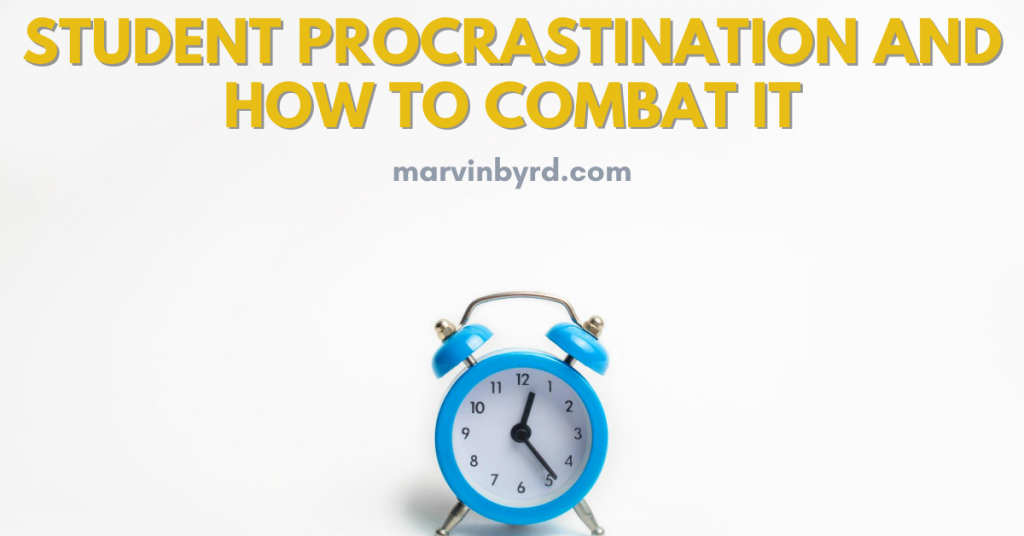Student procrastination is probably at an all time high during this time of distance learning. Students have more independent study time than they have ever had before. Their success greatly depends on how well they invest their time. Some students are thrive and make outstanding choices and some students find it difficult make wise decisions with their time. Although you may not be in the building, I am certain your admin will be looking for student engagement in your virtual classes. Here are 3 tips to help you combat student procrastination:
1. Give a suggested timeline (pacing guide)
Equip students with a timeline for tasks they need to complete during their independent study time. I suggest breaking it into 21 minute chunks. I chose the number “21” because it is an odd number that will stick in their head. Make sure they have easy access to the timeline. If you can, send them hard copies of it so that their parents can easily access it and make sure their child is staying on track. Additionally, make sure they have a clear snapshot of where they are going long-term by giving them study guides and key concepts they should understand by the end of the unit.
2. Explain the importance
Some students require an explanation in order to justify their effort. This may seem trivial and absolutely unnecessary given how important an education is. However, giving students an explanation helps them to grow comfortable with the idea of giving up some free time to complete academic tasks. If they see the pattern of relevance in what they are being asked to do, their mind won’t easily generate excuses as to why they shouldn’t do the work.
3. Stress the importance of good mistakes
For many student perfectionism is still an issue. They figure if they can’t do it perfectly, then they shouldn’t even try. Your job (as difficult as it may be) is to help them understand how they actually get closer to mastery if they do make mistakes because they get valuable feedback as a result. Celebrate mistakes and share with students how others are growing as a result of learning that is due to mistakes.
4. Give ungraded quizzes
Ungraded quizzes not only give students great feedback about their learning. They also help to remind them of the importance of investing their time wisely. These quizzes are also an opportunity to remind students of the pacing guide you gave them. You can remind them that those who keep up with it are in a better position to be successful. These ungraded quizzes can be announced or unannounced. Whether they are graded or not can also vary in order to keep students sharp. Most importantly, students are given an opportunity to reflect on their progress.
What tips do you have to combat student procrastination? Leave them in the comments section. Thanks for reading.
MB
Enjoying the content? Please consider partnering with us to spread the message with a donation via PayPal.
Share via:

